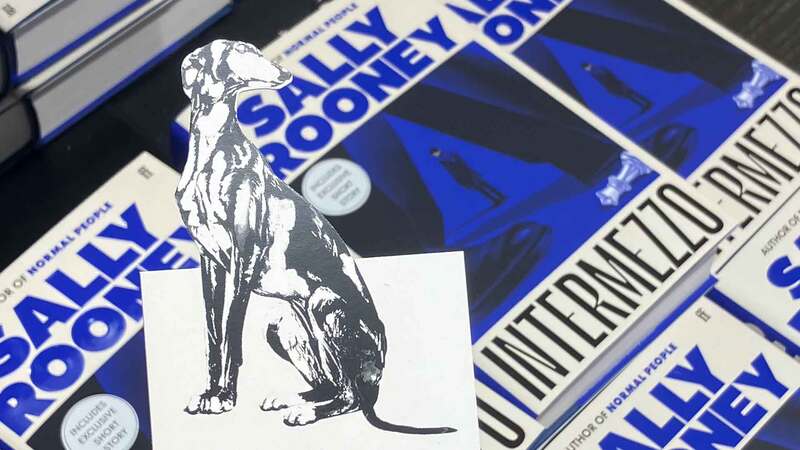You are viewing your 1 free article this month. Login to read more articles.
Major UK booksellers accused of listing far-right titles for sale
Booksellers Amazon, W H Smith, Waterstones and Foyles have become the subject of a Hope not Hate campaign, which has accused them of listing far-right books for sale.
Among the controversial titles the anti-racism campaign group alleges the retailers list for sale are Holocaust denial work Did Six Million Really Die? by Richard Verrall, The Leuchter Reports by Fred Leuchter, and several works by leading Holocaust denier and convicted criminal, Germar Rudolf. Others include notorious antisemitic forgery The Protocols of the Elders of Zion and neo-nazi terror novel The Turner Diaries, an inspiration for Oklahoma bomber Tim McVeigh and London nailbomber David Copeland. The Anarchist Cookbook, which has chapters on home preparation of weapons, electronics, drugs, and explosives, is also advertised for sale on several websites, the campaign organisers said.
A check of accused websites by The Bookseller found that The Turner Diaries, for example, was available to purchase from Foyles, Waterstones and Amazon, and The Anarchist Cookbook was available to buy through Amazon and Waterstones. But Did Six Million Really Die? was not listed as available to buy by either Watestones or Foyles, as the campaign alleged, and while The Protocols of the Learned Elders of Zion was listed for sale at Waterstones, it was not listed for sale at Foyles or Amazon.
Joe Mulhall, senior researcher at Hope not Hate, accused the retailers of legitimising books which have helped inspire extreme violence and terror plots.
However, Waterstones and Foyles have said their website feeds of available titles are taken directly from Nielsen and appear on their sites automatically, with the high volume of titles registered on the database making filtering “unmanageable”.
Paul Currie, chief executive of Foyles, said that after conducting its own research, the company found the “overwhelming majority" of titles cited in Hope not Hate’s investigation were not available to order from Foyles.
A spokesperson for Waterstones also said it drew its listings feed from Nielsen’s database, adding it did not endorse the views, opinions or alleged facts conveyed in the books. Should it receive notification from the police or judicial authorities that a title or titles need to be removed, it would act immediately to do so, the spokesperson said.
James Daunt, managing director for Waterstones, told The Bookseller that it was rare any of the titles were sold through the company's website, because it didn't promote them, and customers had to know the exact title they were searching for it to come up. "It is a difficult subject and one which requires a lot of thought. If you are going to censor things, where do you draw the line? We are using an industry-standard database which draws in books which have been published. The titles are clearly not sensible, some are down right obnoxious, but they are not illegal, so I think for Waterstones it is a very difficult issue."
Mulhall said Foyles and W H Smith had begun “quietly” removing the titles in question from sale since the campaign began.
“While we welcome this gradual attempt to remove these notorious tracts, many more titles still remain and two of the retailers have yet to do anything", he said. "These booksellers are providing a veneer of legitimacy to some of the world’s most extreme neo-nazi and antisemitic tracts. These are works which have helped inspire extreme violence and terror plots, as well as driving hate towards minorities, particularly the Jewish community.”
Adding that the organisation was not trying to curtail freedom of speech, Mulhall continued: “While we abhor these books, Hope not hate is not saying that people do not have the right to write and publish books we disagree with. We are arguing that major mainstream book retailers such as Waterstones, Foyles, Amazon or W H Smith should not profit from extreme hate content such as this. Our further major concern is that these extreme books and authors gain respectability by virtue of their publications being available on the websites of trusted and mainstream sellers.”
Authors Sunjeev Sahota and Jon McGregor have also weighed in to criticise the booksellers.
“What's so disappointing about this is that these retailers have done so much to foster a culture of reading and intellectual curiosity in this country. I hope they respond to this research by taking the necessary steps to remove these hateful books", said Sahota. McGregor added: “These booksellers have earned the high esteem in which they're held by writers and readers alike. That's what makes it so important they don't lend their credibility to these horrifyingly extreme books.”
In a letter responding directly to Mulhall, Foyles' Currie said: "Every few years the issue of undesirable titles appearing on booksellers’ websites has raised its head, and I hope that by sharing some insight into how bibliographic records are maintained and shared we can help shed some light on the situation. Like all book retailers, we take our feed of available titles directly from Nielsen, [which maintains] the database of millions of records created by publishers and self-publishers. Any book in print will therefore appear on our site automatically and, owing to the volume of records involved, any attempt to filter titles manually would be unmanageable. After researching the examples given in your paper, we’ve found that the overwhelming majority of authors and titles listed are not available to order.”
Currie told The Bookseller he had not yet received a response or acknowledgement from the Hope not hate group regarding his email.
A spokesperson for Waterstones gave a similar explanation, arguing that retailer has a listing of millions of books supplied by Nielsen.
The spokesperson said. "We certainly would not stock titles of this kind in our shops. The central job of a bookseller, after all, is one of curation and we exercise this responsibility with as much intelligence as we can. On our website, we curate only the pages for books that are particularly recommended by Waterstones. Beyond this, it simply has a listing of the millions of books notified to Nielsen. We do not censor this listing and customers may search it for specific titles. We do not endorse any of the titles thereby listed on our website, let alone the views, opinions or alleged facts conveyed in them. Of course, should we receive notification from the police or judicial authorities that a title or titles need to be removed, we always act immediately to do so."
A letter from Daunt to Mulhall seen by The Bookseller added: "We do try to screen out the majority of self-published titles that are not published through recognised self-publishing platforms, or firms. This we find excludes most potentially offensive material, and also of course much that is benign. The occasional objectionable title will make its way through such automated efforts, and we will remove them manually when informed of them. Similarly, we will list manually any credible books when notified. A relatively small number of titles will get through via the Nielsen feed but which do not have established distributors. These will be listed but noted to be “unavailable”: we show them but customers cannot order them."
Amazon has declined to comment while W H Smith and Nielsen are yet to respond to requests for comment.
In 2013, W H Smith and e-book partner Kobo were the subject of controversy after a Mail on Sunday investigation found pornographic digital books were available to buy through W H Smith’s website, alongside children’s literature. At the time, W H Smith blamed an automated feed through to its website from Kobo’s, while Kobo blamed “a select group of publishers and authors violating the self-publishing policies of our platform".


















